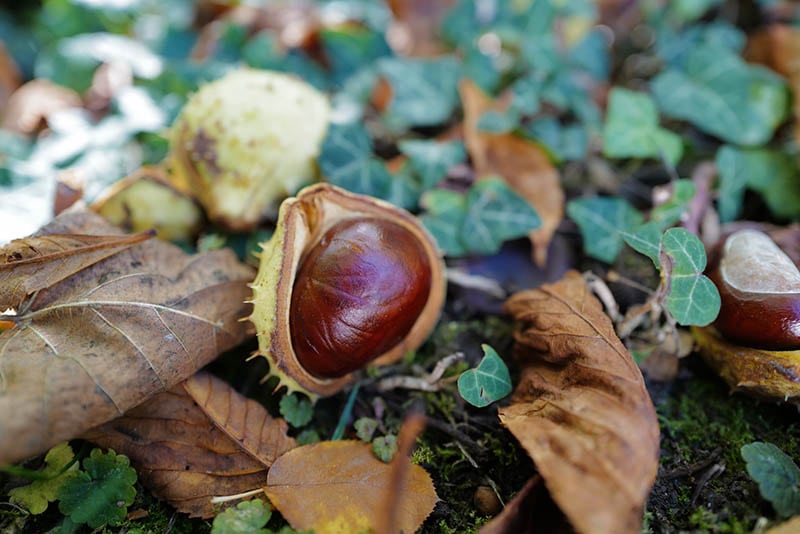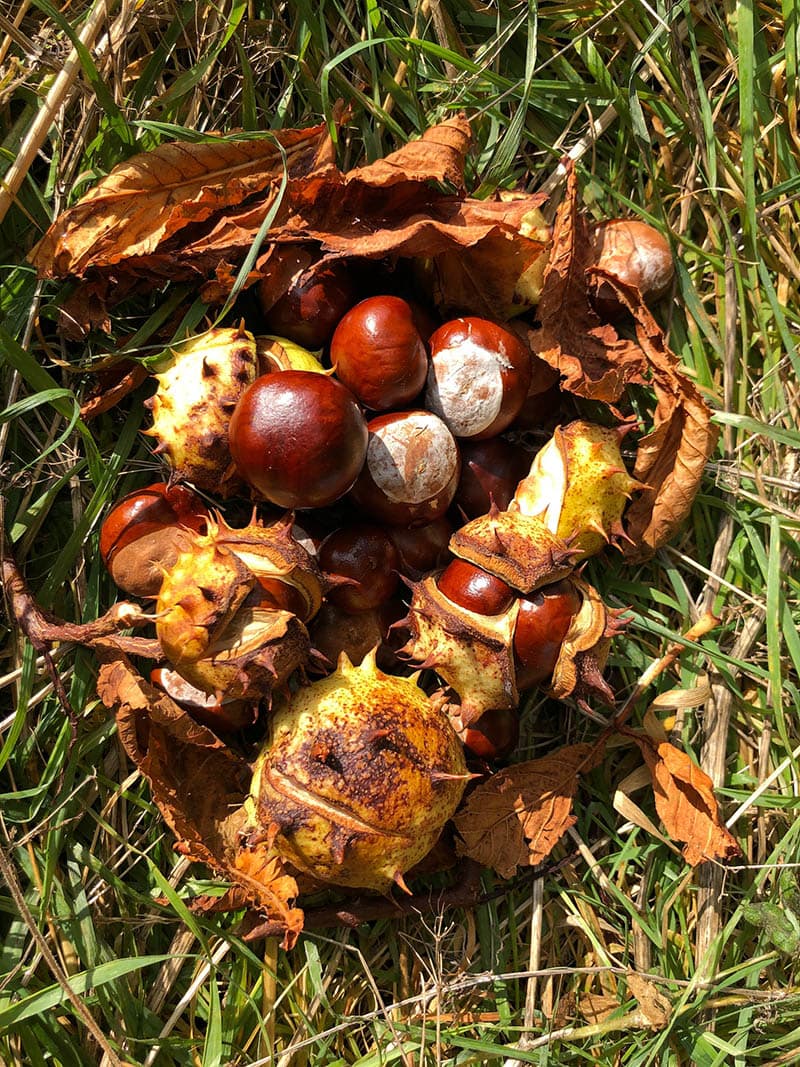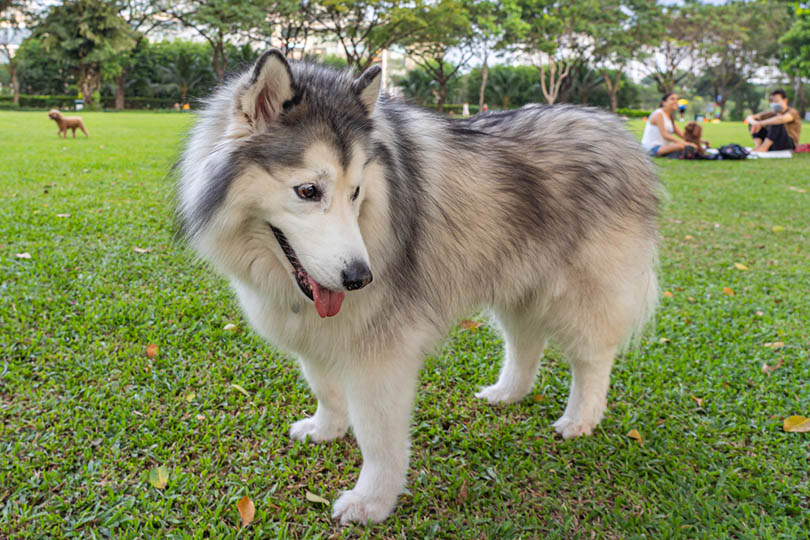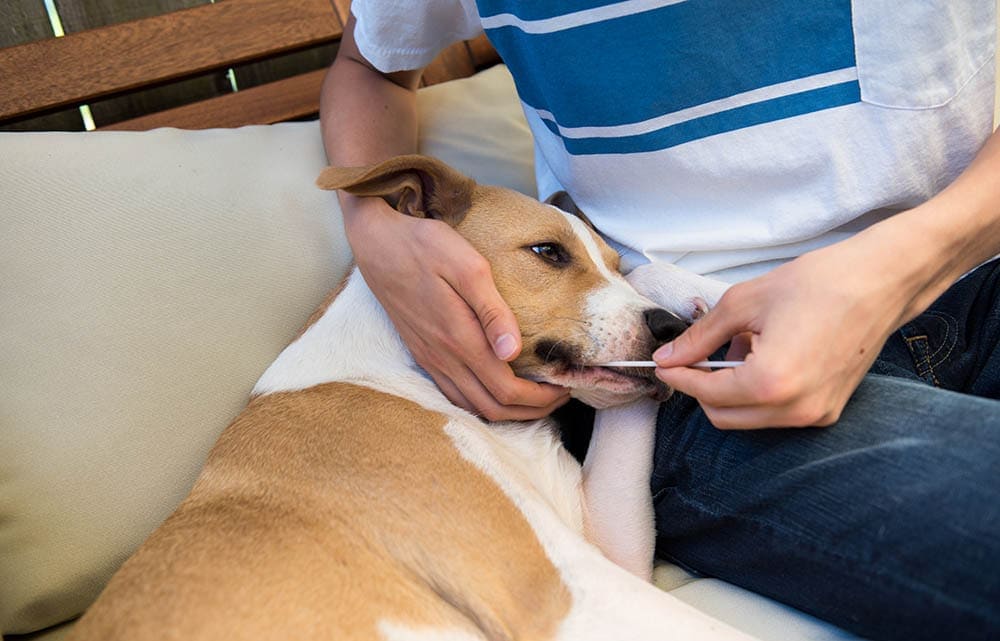My Dog Ate a Conker: Vet-Approved Facts & Safety Guide
By Brooke Bundy
Updated on

Whether you call them buckeyes or conkers, horse chestnuts signal the beginning of autumn. You or your dog might kick them along the trail as you gather leaves or visit the park. When a conker splits open, the green shell and creamy inside layer reveal a hard, dark brown seed. Unfortunately for our canine friends, all parts of this seed are highly toxic if ingested, not to mention that they can be dangerous in other ways. It’s important to reach out to your veterinarian for further instructions if your dog eats a conker. Here’s everything you need to know.
Why Dogs Can’t Eat Conkers
Conkers are spiky, hard, round seeds that fall from horse chestnut trees. While you can roast regular chestnuts over an open fire, conkers are toxic to humans and canines due to a chemical called aesculin. Ingestion isn’t always fatal, but aesculin can make your dog seriously ill with symptoms such as vomiting, diarrhea, and shock. Conkers can also cause potentially fatal gastrointestinal (GI) obstructions due to their dense, prickly nature.
Every part of the horse chestnut tree contains aesculin, so you’ll also want to be sure your dog never eats any of the bark or the leaves.

What to Do If Your Dog Eats a Conker
If you suspect your dog has picked up a conker, try to get them to spit it out before it’s swallowed. You might try the command “Drop it,” if they’re trained. Otherwise, you might offer them a safe treat or try to pick them up to get them to release if they’re a small dog. If it does go down, call your vet immediately to see what to do next. You shouldn’t try to induce vomiting before telling your vet what’s going on, especially since the spiky part of the conker may hurt your dog’s throat if it’s forced to return.
You may not always notice if your dog eats something it shouldn’t, so you should familiarize yourself with these common signs of toxin ingestion. Aesculin isn’t the only substance that causes these distressing issues, so it’s really critical to take your pet to the vet if they experience these signs after eating anything, not just conkers:
- Severe vomiting
- Severe diarrhea
- Lethargy
- Collapse
- Respiratory distress
- Trouble defecating
- Bloody stools
- Tremors
Even if your pet hasn’t been on a walk today, they could’ve still eaten a conker. Aesculin poisoning may not show symptoms for the first day or two after ingestion.
Regardless of what part of the conker they swallowed, your dog may need to be fully evaluated by your vet to find the most effective treatment, so it’s important to contact them as soon as possible. Your vet may instruct you how to induce vomiting at home or recommend that you bring them in for treatment. Your dog may need medication to flush the toxin out of their system or may require surgery if there is a GI obstruction.
Conclusion
Hard, spiky, and poisonous, the autumnal conker spells potential trouble for our canine friends. Always keep a close eye on your dog during their walks to avoid letting them eat something toxic. If they do eat a conker, or if they show any signs of poisoning, call your vet immediately. Some substances are so toxic that they can be deadly in just a few hours, so it’s important to act quickly and contact your vet for the best prognosis. Even if your dog is not affected by the toxin, it could still be affected by the spiky part of the conker or have GI obstruction. It’s always better to be safe than sorry.
Featured Image Credit: Georg Eiermann, Unsplash













